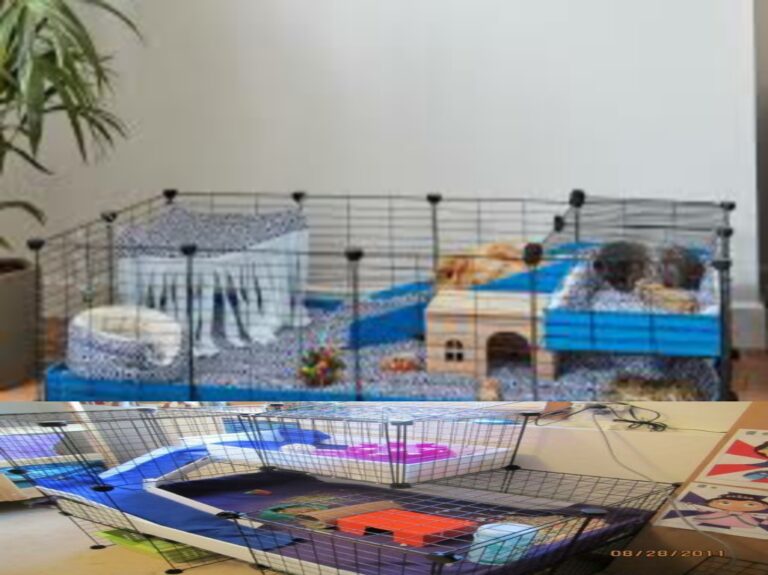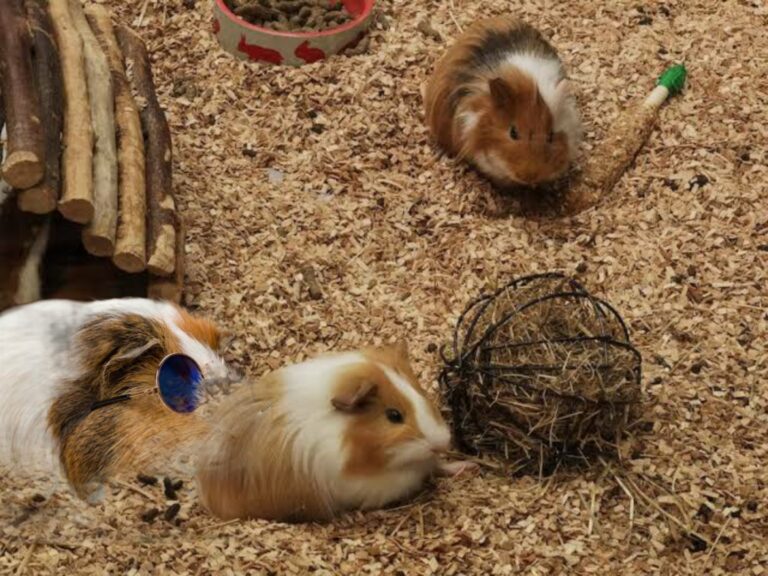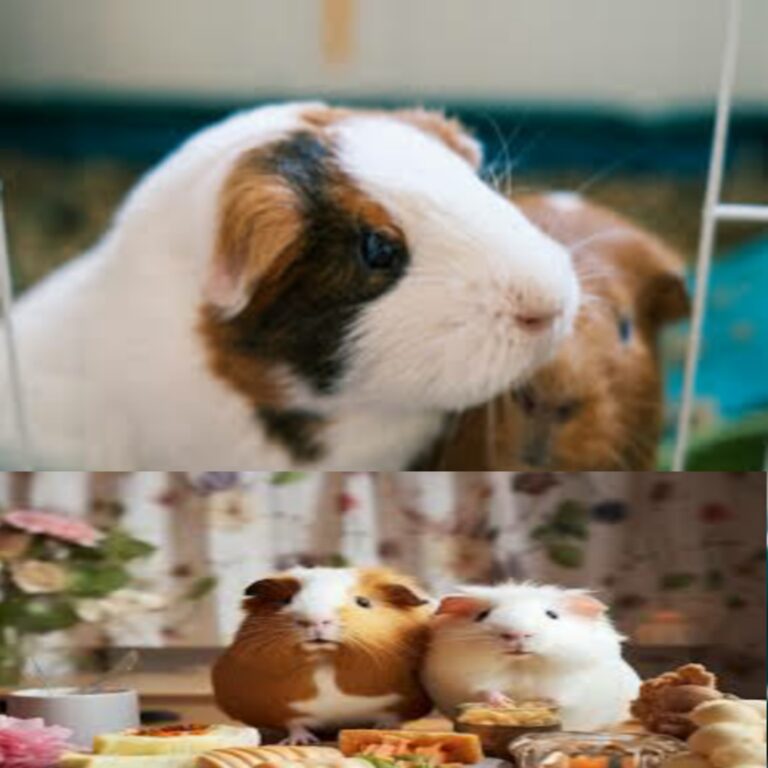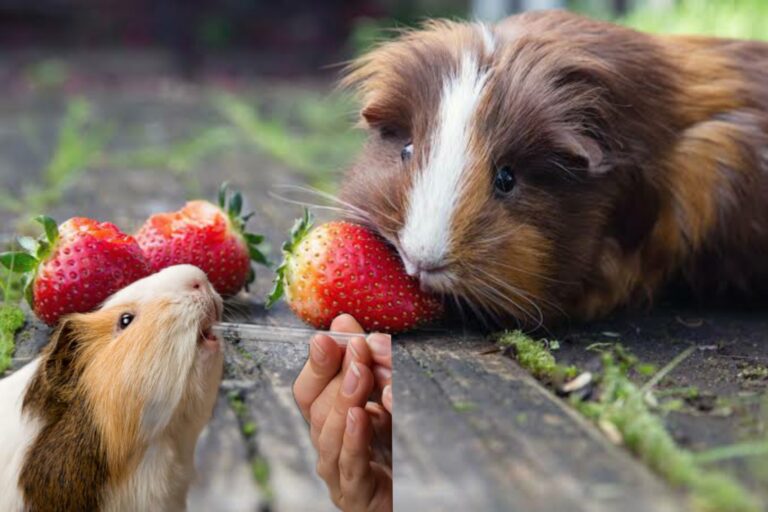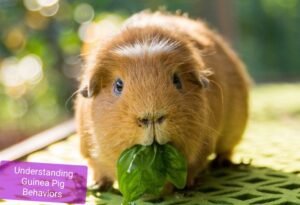
Guinea pigs have many interesting behaviors and unique body language quirks. If you learn to interpret these behaviors, it will help you build a better relationship with your pet. Here are 18 strange things guinea pigs do and what they mean.
1. Spraying Urine: You may have noticed that your guinea pig sometimes pees on another guinea pig in the cage. This behavior is often a way to show dominance. The dominant guinea pig will pee on the subordinate one to assert authority. Peeing on each other is a normal instinctual behavior and a way for your piggies to communicate. They also spray urine to mark their territory or when they are annoyed with each other.
2. Sleeping with Open Eyes: Yes, guinea pigs often sleep with their eyes open! They can also sleep with their eyes closed, but only when they feel very safe and comfortable. As prey animals, guinea pigs are always alert for predators, even while sleeping. If your guinea pig sleeps with their eyes closed, it means they feel secure in their environment. If you see them standing still, almost in a trance, they are likely asleep. You can also check their whiskers and ears; guinea pigs dream during the REM stage of sleep and may twitch in response to their dreams.
3. Eating Cicatropes: Have you ever seen your guinea pig dip its head down between its hind legs and come up chewing? This means your piggy is eating cecotropes, which are soft feces rich in nutrients. Guinea pigs produce two types of droppings: fecal pellets and cecal pellets. Fecal pellets are waste that their body no longer needs, while cecal pellets are packed with nutrients that their body hasn’t absorbed. If you see your pet eating their own feces, don’t worry; they are re-ingesting their cecotropes to get the nutrients they need.
4. Popcorning: Popcorning is when a guinea pig hops straight up in the air, sometimes repeatedly. This usually happens when they are very happy and excited. If your guinea pig popcorning around you, it means they are joyful and love being near you. Younger guinea pigs are more likely to popcorn because they have lots of energy.
5. Biting: Guinea pigs are generally not aggressive, but they might bite if they feel threatened. Their teeth are one of their few natural defenses. If your guinea pig is scared or nervous, it may bite to protect itself or to warn you that it is unhappy. Sudden aggression can also indicate health problems, so if your piggy becomes aggressive, it’s a good idea to take them to a vet for a check-up.
6. Biting Their Cage: Guinea pigs’ teeth grow continuously, so they need to chew regularly to keep them healthy. If they are biting their cage bars, it may mean they don’t have enough things to chew on. Make sure to provide plenty of chew toys and a daily supply of hay for them to graze on. They may also chew on their cage bars when they are bored, nervous, or frustrated.
7. Freezing: When guinea pigs feel threatened, they may freeze or stand completely still. This can happen due to loud noises, sudden movements, or unfamiliar smells. Their goal is to be as invisible as possible. Once they sense that the danger is gone, they will unfreeze.
8. Licking: Bonded guinea pigs show affection by grooming and licking each other. If your piggy licks you or tries to nibble you gently, they are showing love and care. They may also lick you simply because you taste good, especially if you have remnants of a tasty treat on your skin.
9. Sprawling Out: When a guinea pig lies down on its side or belly, it indicates that they feel comfortable and safe. This position is vulnerable, as it takes longer for them to get up in case of danger. If your guinea pigs sleep this way next to you, it means they fully trust you.
10. Scent Marking: If you see your guinea pigs rubbing their bottoms against the floor or cage furnishings, they are marking their territory. They have scent glands that help them claim their space. When they rub against something, they leave a tiny amount of their scent behind. Other guinea pigs can smell this scent, even though we cannot. Remember, guinea pigs may also rub their bottoms to relieve an itch, and constant dragging can indicate health issues.
11. Tossing Head in the Air: If your guinea pig tosses its head back, it may be annoyed or uncomfortable. This often happens when they want you to stop petting them.
12. Mounting: Mounting can indicate a reproductive response or a display of dominance. Guinea pigs are social animals with structured hierarchies. A dominant guinea pig may chase others and mount them to establish their place in the group.
13. Running Away from Being Picked Up: As prey animals, guinea pigs instinctively run away if they feel threatened. If your guinea pig backs away when you try to pick them up, it’s not a rejection; it’s a natural defense. Give them time to feel comfortable, and they will enjoy spending time with you outside of their cage.
14. Yawning: Guinea pigs yawn for two reasons: to prepare for a nap or to show their teeth to another guinea pig as a way of establishing dominance.
15. Sniffing the Air: Sniffing is how guinea pigs explore their surroundings. If your guinea pig is sniffing the air, they are checking for food or potential threats. Their sense of smell is much better than ours, so they may detect things we cannot.
16. Fidgeting While Being Held: If your guinea pig fidgets, it may be tired of being held or need to go to the bathroom. Remember, guinea pigs urinate frequently, so if they start fidgeting, it’s best to return them to their cage.
17. Touching Noses: When two guinea pigs touch noses, they are sniffing each other. This behavior is a way for them to greet and get to know one another.
18. Head Raising: Raising or stretching their head is another way guinea pigs show dominance. In their social circles, a higher head position indicates a more dominant status.
Now that you know more about guinea pigs and how they communicate, you can better understand their needs and provide them with the care they deserve.
